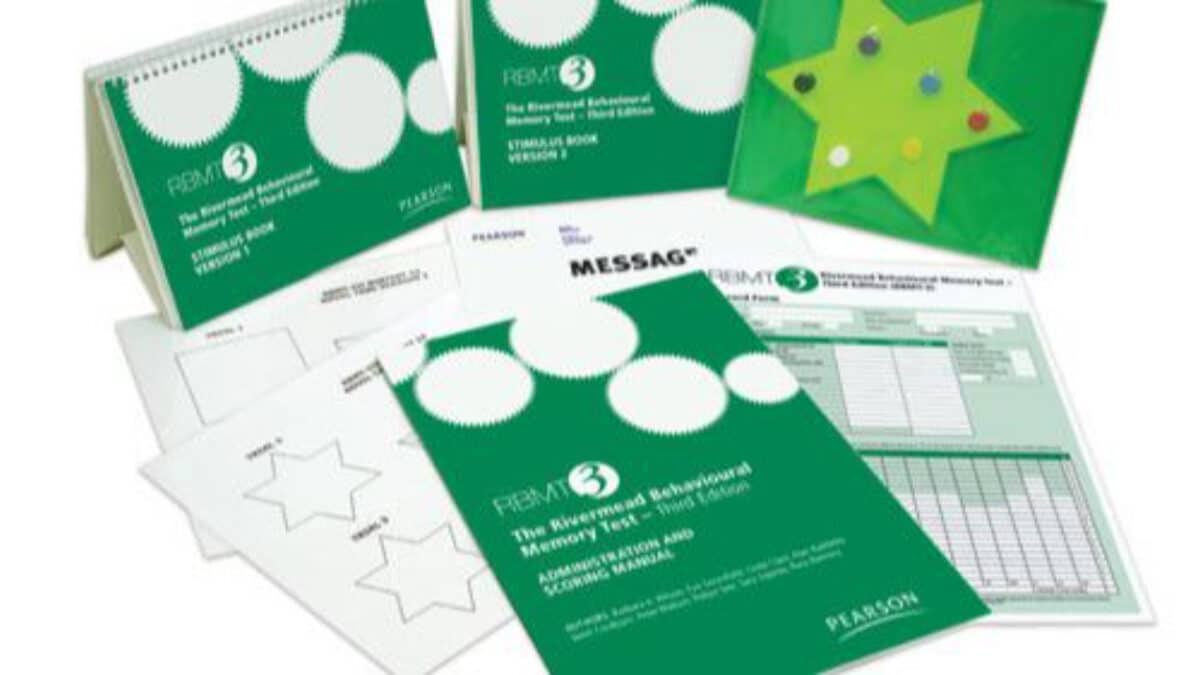Memory impairment is one of the most common cognitive issues occupational therapists assess and treat when working with clients who have sustained a head injury. Memory deficits, even when subtle, can have serious consequences for returning to daily activities and returning to work following an accident.
The Rivermead Behavioural Memory Test – Third Edition (RBMT-3) was developed by Barbara Wilson, a clinical psychologist and is widely used among occupational therapists in Canada and around the world. OTs at GLA use the RBMT-3 as it assesses multiple components of memory including visual, verbal, recall, recognition, immediate and delayed everyday memory. The third and most recent edition, which is used by GLA, also provides testing of prospective memory and ability to learn new information. The RBMT-3 uses “real life” tests such as recalling details of a story, recalling names and faces, and remembering important information after time has passed.
Once the test has been completed a overall “General Memory Index” is assigned to the client but more importantly, sub scores in areas such as facial recognition, orientation, learning a novel task and remembering names are also provided. This is useful as it allows the OT to pinpoint specific areas of deficit and to then provide more targeted treatment approaches.
The RBMT-3 is also an essential component of most Cognitive Assessment Reports provided by OTs at GLA. The test enables the assessor to comment on very specific examples of memory impairments and strengths. There are two versions of the test which allows for retesting and these results can also be reported in subsequent OT progress notes.
The RBMT-3 has demonstrated strong construct, clinical and ecological validity (Efklides et al., 2002 & Smith et al., 2000).
There is an emerging area of research which is exploring the relationship between Post-Traumatic Stress Disorder (PTSD) and memory impairments (Adams, L., & Tourgeman, I., 2016). The RBMT-3 has been used to assess memory in people experiencing PTSD. For example, a 2006 study found that in a group of combat veterans, PTSD was associated with high-level attention deficits which in turn affected other cognitive functions such as memory and reasoning (Koso, M., & Hansen, S., 2006).
OTs at GLA treat clients with PTSD who report changes to memory. We are closely monitoring this emerging field of research and will continue to assess and treat clients with PTSD who are experiencing memory deficits. The RBMT-3 is an important tool for these complicated assessments.
To learn more about the RBMT-3 or other assessments used at GLA, please contact us. We would be happy to provide you with more information.
References:
Adams, L., & Tourgeman, I. (2016). C-63Verbal Memory Performance in Combat Veterans with Posttraumatic Stress Disorder: A Systematic Review. Archives of Clinical Neuropsychology, 31(6), 663-667.
Efklides, A., Yiultsi, E., Kangellidou, T., Kounti, F., Dina, F., & Tsolaki, M. (2002). Wechsler Memory Scale, Rivermead Behavioral Memory Test, and Everyday Memory Questionnaire in Healthy Adults and Alzheimer Patients. European Journal of Psychological Assessment, Volume 18, Issue 1, Pages 63-77.
Koso, M., & Hansen, S. (2006). Executive function and memory in posttraumatic stress disorder: a study of Bosnian war veterans. European Psychiatry, Volume 21, Issue 3, Pages 167-173.
Smith, G. V., Della Sala, S., Logie, R. H., & Maylor, E. A. M. (2000). Prospective and retrospective memory in normal ageing and dementia: A questionnaire study. Memory, 8, 311-321

